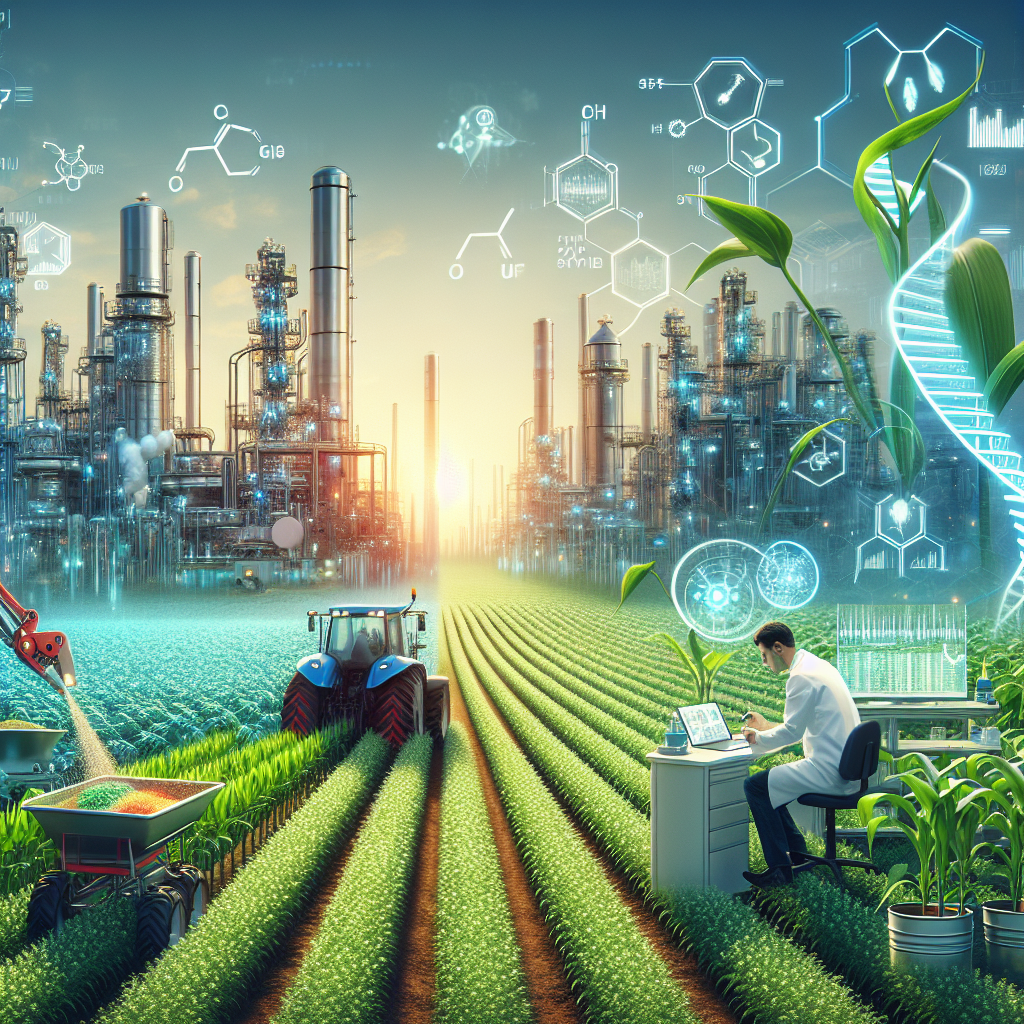The Biotech Revolution in Sustainable Food Production
In recent years, the intersection of biotechnology and agriculture has ushered in a transformative era for food production, promising solutions to some of the most pressing challenges of our time. The biotech revolution in sustainable food production is not just changing the way food is grown and distributed; it is reshaping our relationship with the environment, enhancing food security, and paving the way for a more resilient and sustainable food system. This article explores the innovations driving this revolution, the benefits they bring, and the potential they hold for the future of food.
Innovations in Biotechnology
Biotechnology encompasses a broad range of techniques that deploy biological organisms, systems, or processes to develop or make products. In agriculture, these innovations are diverse, ranging from genetically modified organisms (GMOs) designed to resist pests and diseases, to precision agriculture technologies that optimize inputs like water and fertilizers to enhance productivity and reduce waste.
Genetic Engineering and CRISPR
Genetic engineering has allowed scientists to introduce specific genes into plants to confer desired traits, such as drought tolerance or resistance to pests, reducing the need for chemical inputs. More recently, CRISPR-Cas9 gene editing has taken this a step further by enabling more precise alterations at the genetic level, potentially allowing for the creation of crops that are not only more resilient but also more nutritious.
Vertical Farming and Hydroponics
Vertical farming, where crops are grown in stacked layers often without soil or natural light, has emerged as a promising solution to the challenge of producing food in urban environments or areas with unsuitable farming conditions. Coupled with hydroponics, which involves growing plants in nutrient-rich water, these technologies can significantly reduce water usage, eliminate the need for chemical fertilizers and pesticides, and increase yields per square meter.
Biofortification and Microbiome Engineering
Biofortification aims to increase the nutritional value of crops through genetic modification or selective breeding. This has significant implications for combating malnutrition and micronutrient deficiencies in developing countries. Meanwhile, microbiome engineering focuses on harnessing the power of microorganisms to improve plant health and soil quality, offering an eco-friendly alternative to chemical fertilizers and pesticides.
Benefits of Biotech in Sustainable Food Production
The benefits of adopting biotechnological innovations in food production are vast. They contribute to sustainability by reducing the environmental footprint of agriculture, enhancing productivity and resilience to climate change, and improving nutritional outcomes.
Environmental Sustainability
Biotech crops can reduce the reliance on chemical inputs, lower greenhouse gas emissions, and minimize water and land use, contributing to the preservation of biodiversity. Precision agriculture technologies ensure resources are used more efficiently, further reducing the environmental impact of farming.
Food Security and Climate Resilience
By increasing yields and reducing losses due to pests, diseases, and environmental stresses, biotech innovations can significantly enhance food security. Crops engineered to withstand extreme weather conditions will be crucial in adapting to climate change and ensuring a stable food supply.
Nutritional Benefits
Biofortified crops offer a viable solution to nutrient deficiencies, particularly in regions where access to a diverse diet is limited. By improving the nutritional profile of staple crops, biotechnology has the potential to make a considerable impact on public health.
The Future of Food Production
As we look to the future, the role of biotechnology in sustainable food production is set to grow. The integration of artificial intelligence and machine learning with biotech innovations could lead to even more precise and efficient farming techniques, further revolutionizing the way we produce food. However, realizing the full potential of this revolution will require addressing regulatory, ethical, and social concerns associated with biotech crops, as well as ensuring equitable access to these technologies.
FAQs
What is biotechnology in food production?
Biotechnology in food production involves using biological processes, organisms, or systems to develop or make products related to food growing, processing, or preservation. This includes genetically modified crops, precision agriculture, and other innovative techniques aimed at enhancing sustainability and efficiency.
How does biotechnology contribute to sustainability?
Biotechnology contributes to sustainability by enabling more efficient use of resources, reducing the environmental impact of farming, enhancing crop resilience to climate change, and improving the nutritional quality of food. This includes reducing the need for water, fertilizers, and pesticides, as well as developing crops that can grow in challenging conditions.
Are biotech foods safe?
Yes, biotech foods undergo rigorous testing and assessment by regulatory bodies around the world to ensure their safety for human consumption. The consensus among scientific organizations is that foods from genetically modified crops are as safe as those from conventional crops.
What is CRISPR-Cas9, and why is it significant?
CRISPR-Cas9 is a gene-editing technology that allows for precise modifications to an organism’s DNA. It is significant because it offers a faster, cheaper, and more accurate method for developing crops with desirable traits, such as increased yield, nutritional value, or resistance to pests and diseases, compared to traditional breeding methods.
How can consumers support sustainable food production?
Consumers can support sustainable food production by choosing products that are sustainably sourced and produced, supporting local and organic farmers, reducing food waste, and staying informed about the origins and impacts of their food choices.
The biotech revolution in sustainable food production is a beacon of hope for addressing global food security, environmental sustainability, and nutritional challenges. By embracing these innovations, we can move towards a more sustainable and resilient food system that benefits both people and the planet.

